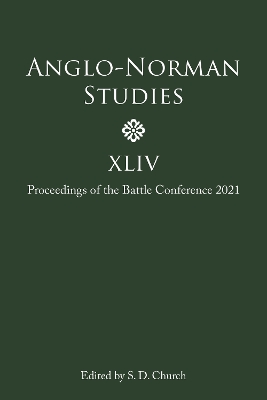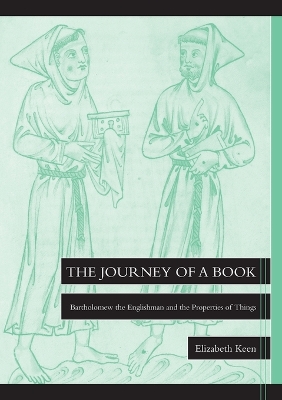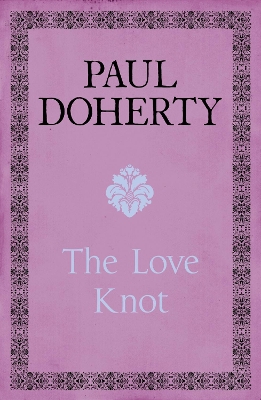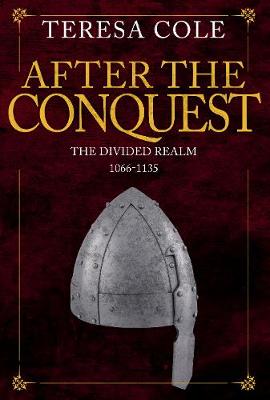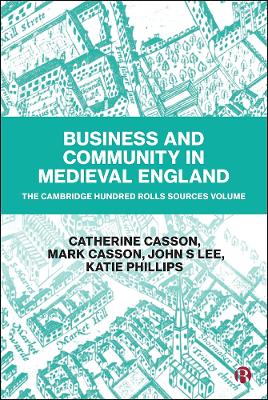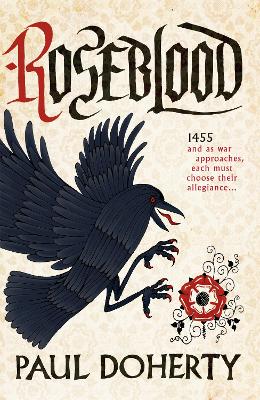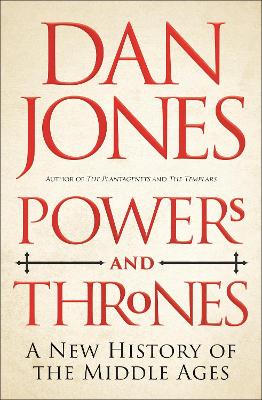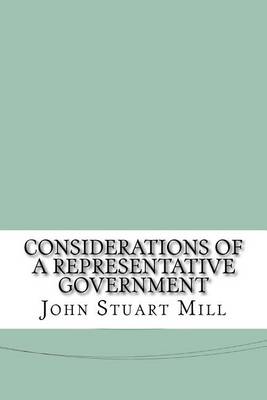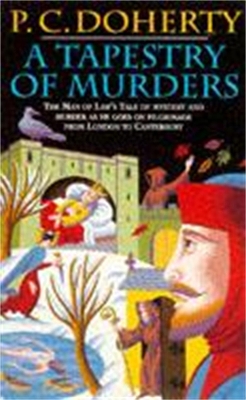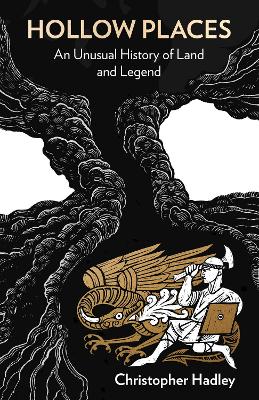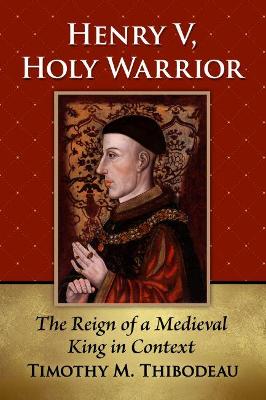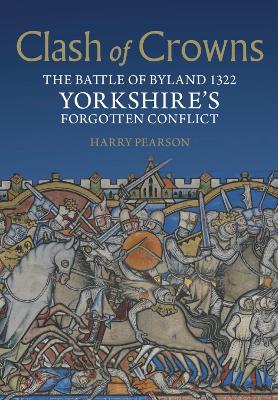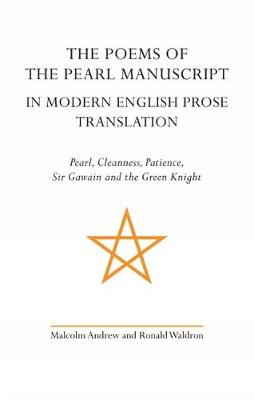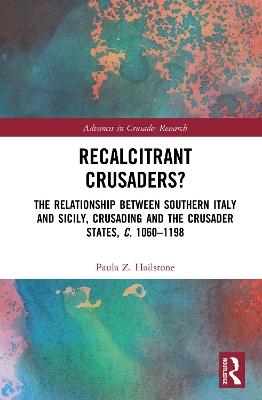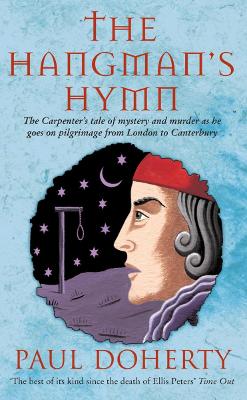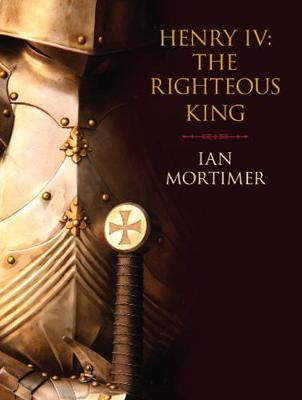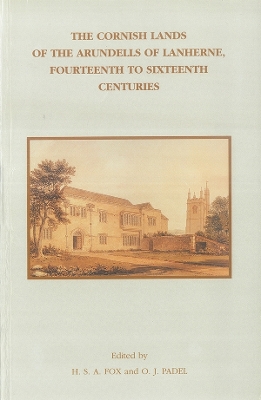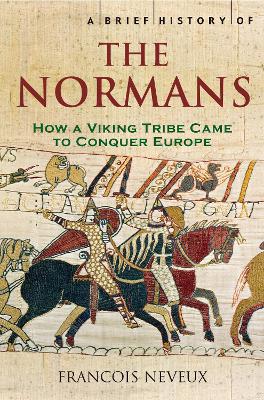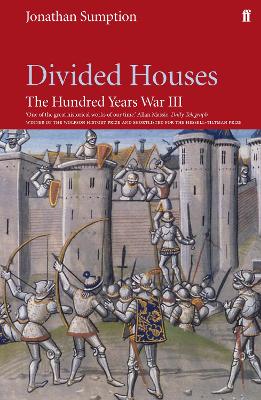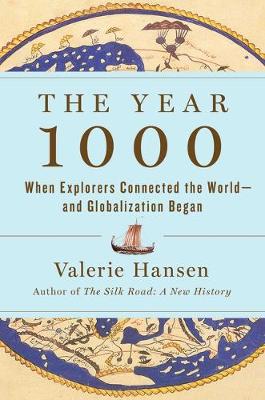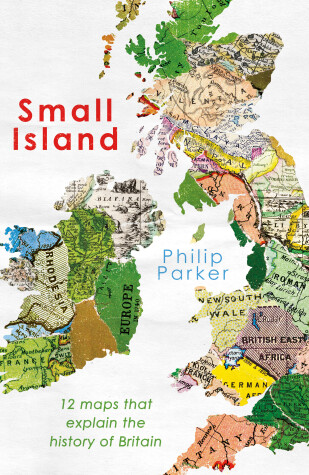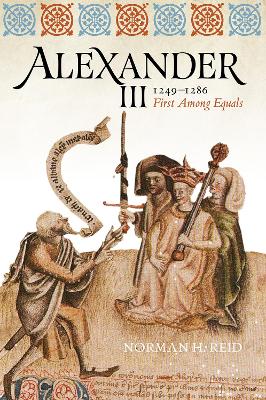The essays collected here demonstrate the rich vitality of scholarship in this area. This volume has a particular focus on the interrelations between the various parts of north-western Europe. After the opening piece on Lotharingia, there are detailed studies of the relationship between Ponthieu and its Norman neighbours, and between the Norman and Angevin duke-kings and the other French nobility, followed by an investigation of the world of demons and possession in Norman Italy, with additional...
In Paul Doherty's brilliant new novel, will Hugh Corbett find the deadly assassin stalking London's streets? February 1304, and London is in crisis. A succession of brutal murders shocks the city as it comes to terms with the fall from power of Walter Evesham, Chief Justice in the Court of the King's Bench. Accused of bribery and corruption, Evesham has sought sanctuary to atone for his sins. When Evesham is discovered dead in his cell at the Abbey of Sion though, it appears that the Mysterium,...
A powerful and passionate story of forbidden love set in Medieval England...Immersed in the colours and drama of medieval life, Paul Doherty's richly evocative novel, The Love Knot, combines fact and fiction to tell one of history's greatest but most secret love affairs. Perfect for fans of Philippa Gregory and Jean Plaidy. Spring, 1297. Recently widowed Joanna of Acre, loving daughter of Edward I, is pleased at her father's unexpected visit. But Edward has heard a rumour of an inappropriate fri...
The Anglo-Saxon Chronicle
The Anglo-Saxon Chronicle can be regarded as the most important work written in English in pre-Norman times: the beginnings of English prose are found in the annals, written in an age when Latin was the language of documentation. This book presents the text and a study of the Chronicle.
On his deathbed William the Conqueror divided his property between his three sons, Robert, William and Henry. One of them got England, one got Normandy and one GBP5,000 of silver. None of them was satisfied with what he received. It took much violence, treachery, sudden death and twenty years before one of them reigned supreme over all the Conqueror's lands. Geoffrey of Monmouth, in his 'Prophecies of Merlin', depicted them as two dragons and a lion with a mighty roar, but which would end up th...
Business and Community in Medieval England
by Catherine Casson, Mark Casson, John Lee, and Katie Phillips
One of the most important manuscripts surviving from thirteenth-century England, the corpus of documents known as the Hundred Rolls for Cambridge have been incomplete until the recent discovery of an additional roll. This invaluable volume replaces the previous inaccurate transcription by the record commission of 1818 and provides new translations and additional appendices. Shedding new light on important facets of business activity in thirteenth-century Cambridge, this volume makes a signific...
England, 1455: a kingdom on the brink of civil war.The Red Rose: King Henry of Lancaster's days are numbered. Deemed unfit for rule, even by his own mother, he surely cannot last on the throne for long. Simon Roseblood - London lord, taverner and alderman - is one of few loyal servants left to fight his cause. The White Rose: Ruthless Richard of York has his eye firmly set on the crown - and plenty of powerful allies who will do anything to help him win it. Henchman Amadeus Sevigny makes no bone...
The instant Sunday Times bestseller A Times, New Statesman and Spectator Book of the Year 'Simply the best popular history of the Middle Ages there is' Sunday Times 'A great achievement, pulling together many strands with aplomb' Peter Frankopan, Spectator, Books of the Year 'It's so delightful to encounter a skilled historian of such enormous energy who's never afraid of being entertaining' The Times, Books of the Year 'An amazing masterly gripping panorama' Simon Sebag Montefiore 'A bada...
A Tapestry of Murders (Canterbury Tales Mysteries, #2)
by Paul Doherty
Chaucer's pilgrims, quarrelling amongst themselves, are now in open countryside enjoying the fresh spring weather as they progress slowly towards Canterbury. A motley collection of travellers, they each have their dark secrets, hidden passions and complex lives. As they shelter in a tavern from a sudden April shower they choose the Man of Law to narrate the next tale of fear and sinister dealings.In August 1358, the Dowager Queen Isabella, mother of King Edward III, the 'She Wolf of France', who...
‘Impossible to summarise and delightfully absorbing, Hadley’s book is comfortably the most unexpected history book of the year’ Sunday Times A luminous journey through a thousand years of folklore and English history. Hollow Places begins with a Hertfordshire dragon-slayer named Piers Shonks but soon draws us into the company of outlaws and stonemasons, antiquaries and champions. Full of wonder and always surprising, the story t...
King Henry V saw his reign and military efforts in France as a holy crusade to reclaim the French throne for his ancestors. Almost everything he did was governed by a well-thought-out philosophy that united political power, religious devotion and military success. This book includes the most up-to-date research on Henry V's reign, with a focus on historiography. His role in English history, as well as his actions as a ruler and military commander, are discussed throughout the text. This approach...
For students of Middle English, Andrew and Waldron's The Poems of the Pearl Manuscript has been the key edition of the four Pearl poems for over thirty years. With the changing needs of today's students in mind, the editors produced a complete prose translation of the four poems - the best known of which is Sir Gawain and the Green Knight. The near-literal translations are intended to facilitate understanding of the four poems - to lead readers to, rather than away from, the original texts. Th...
Recalcitrant Crusaders? (Advances in Crusades Research)
by Paula Z. Hailstone
This book explores the contribution of southern Italy and Sicily to the crusades and crusader states. By adopting the theme of identity as a tool of analysis, it argues that a far more nuanced picture emerges about the relationship than the dismissive portrayal by William of Tyre in his Chronicon, which has largely been accepted by later historians. Building upon previous scholarship in relation to Norman identity, it widens the discussion to evaluate the role of more fluid and evolving Italo-No...
Even death itself cannot keep three witches at bay...Paul Doherty relates the Carpenter's tale in The Hangman's Hymn - a tale of mystery and murder as he goes on pilgrimage from London to Canterbury. Perfect for fans of Ellis Peters and Susanna Gregory.Stumbling upon an execution, Chaucer's pilgrims witness a hanging that leaves the carpenter in a dead faint. That evening, he narrates the tale of a Gloucester hangman whose involvement in the secretive punishment of three witches unleashes a vici...
The Cornish Lands of the Arundells of Lanherne, Fourteenth to Sixteenth Centuries
by H.S.A. Fox and O. J. Padel
The Arundell family of Lanherne, near Newquay, was one of the richest and most important in Cornwall in the late Middle Ages, having extensive property in most parts of the county as well as elsewhere (notably Devon and Dorset). Cornwall Record Office has recently acquired the family archive, and this provides the opportunity for publishing some of its rich contents. As a first offering, this volume contains rentals and surveys of the Arundell lands inCornwall from the fourteenth to the sixteent...
The history of the Normans began a long time before 1066. Originating from the 'Norsemen' they were one of the most successful warrior tribes of the Dark Ages that came to dominate Europe from the Baltic Sea to the island of Sicily and the borders of Eastern Europe. Beginning as Viking raiders in the eighth century, the Normans not only changed the landscape of Europe but were changed by their new conquests. As a military force they became unstoppable. As Conquerors, they established their own k...
Divided Houses is a tale of contrasting fortunes. In the last decade of his reign Edward III, a senile, pathetic symbol of England's past conquests, was condemned to see them overrun by the armies of his enemies. When he died, in 1377, he was succeeded by a vulnerable child, who was destined to grow into a neurotic and unstable adult presiding over a divided nation. Meanwhile France entered upon one of the most glittering periods of her medieval history, years of power and ceremony, astonishing...
When did globalization begin? Most observers have settled on 1492, the year Columbus discovered America. But as celebrated Yale professor Valerie Hansen shows, it was the year 1000, when for the first time new trade routes linked the entire globe, so an object could in theory circumnavigate the world. This was the 'big bang' of globalization, which ushered in a new era of exploration and trade, and which paved the way for Europeans to dominate after Columbus reached America.Drawing on a wide ran...
The greatest questions of our future can be answered by twelve crucial moments in Britain's history.It wasn't long-ago that Britons could have been as at home in Varanasi as they could have been in Wolverhampton - why? - because the shape and location of Britain's land-mass has not always been the same, and with large parts of Britain scattered across the globe, British borders and its identity has always been on the move.But, by knowing more about the twelve pivotal moments that occurred over a...
Winner of the Saltire Society Scottish History Book of the Year 2019 Presiding over an age of relative peace and prosperity, Alexander III represented the zenith of Scottish medieval kingship. The events which followed his early and unexpected death plunged Scotland into turmoil, and into a period of warfare and internal decline which almost brought about the demise of the Scottish state. This study fills a serious gap in the historiography of medieval Scotland. For many decades, even centuri...
